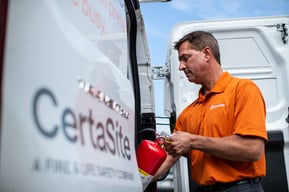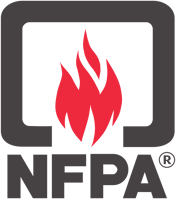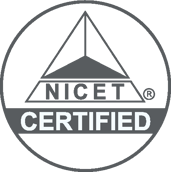
When considering different job paths, fire and life safety may not come to the top of your mind, but there's a diverse range of career opportunities within this industry.
There are many specialties within the field of fire and life safety. From inspections of safety equipment to installation of sprinkler systems, fire alarm technicians to shop or hood technicians, there are limitless possibilities for growth.
And, once you're in the industry, there are a variety of ways to stay at the top of your game and make sure you're up to speed on all the latest trends and technology. Read on to learn three things you can do to grow your own fire and life safety career, whether you're a seasoned veteran or just starting out.
Get Certified and Continue Your Education
It's very important to maintain various certifications if you work in fire and life safety, depending on your specialty. This field involves protecting property and lives, and so certifications help ensure that various standards are upheld by professionals to provide the best protection possible to customers.
While there are a variety of state and local certifications, above all, it's important to keep in mind the certifications from two well-known national groups - the National Fire Protection Association (NFPA) and the National Institute for Certification in Engineering Technologies (NICET).

The NFPA offers many different certification programs, including certifications for:
-
-
-
-
-
-
-
Electrical safety workers or technicians
-
Emergency power specialists
-
Fire protection specialists
-
Fire inspectors
-
Life safety specialists
-
-
-
-
-
-
If there's a particular field you're in or that you're interested in exploring, you can use that to help guide which certifications you obtain. Many of the certifications offer online classes to go along with them, with a test you take at the end. There are also group trainings available to companies for many different programs.
Another major source of certifications is NICET. This organization works to certify those professionals who are the "hands on" members of a team - the people who actually install various systems. They offer certifications in areas such as electrical power testing, in-building public safety communications, inspection and testing of fire alarm systems, and more. NICET certifications sometimes require a particular type of degree or other educational requirements, along with a certain amount of hands-on experience. A test is required to become certified.
those professionals who are the "hands on" members of a team - the people who actually install various systems. They offer certifications in areas such as electrical power testing, in-building public safety communications, inspection and testing of fire alarm systems, and more. NICET certifications sometimes require a particular type of degree or other educational requirements, along with a certain amount of hands-on experience. A test is required to become certified.
Depending on where you live, there may also be certifications you can obtain at the state level. A simple online search can help guide which certifications might be right for you based on where you live and work.
Join Industry and Networking Groups
When you become certified, it can be a great time to also inquire about industry groups you might be able to join. Much like certifications, these often vary by specialization. Some might include:
-
NFPA groups
-
NICET groups
-
National Fire Sprinkler Association
-
American Fire Sprinkler Association
-
The Society of Fire Protection Engineers
-
Other local groups
Each state has its own associations for fire and life safety professionals, and seeking these out and joining them can help you network locally, which, in turn, can lead to career opportunities.
Along with fire and life safety specific networking, it can also be helpful to join general community groups aimed at professional networking opportunities. These could include young professionals' groups or chambers of commerce. Oftentimes, who you know can give you a leg up in an interview or make you aware of a career opportunity you otherwise would have missed, and so when it comes to networking, the more you can do, the better.
Attend Trade Shows and Conferences
Another great way to stay abreast of any changes or improvements in the field is to attend relevant trade shows and conferences.
One of the largest industry conferences is the NFPA Conference & Expo, which is held each year, typically in June. This year's conference took place June 6-9 in Boston. This conference provides many different networking opportunities as well as educational programs for attendees.
There are also a variety of conferences and expos available at the state level for many specialties. These conferences can be great to attend from a networking perspective, as you're more likely to interact with employees or companies located in the area where you live. You can find these conferences by searching online, or by referring to your state government's event pages, as some may be hosted by the State itself.
Whether you're at the start of your career in fire and life safety or have been in the industry for decades, it's important to always work to continue developing your career. Not only does this help your own career trajectory - but it also ensure you're serving your customers to the best of your ability.
To learn more about career options at CertaSite, visit www.certasitepro.com/careers.

